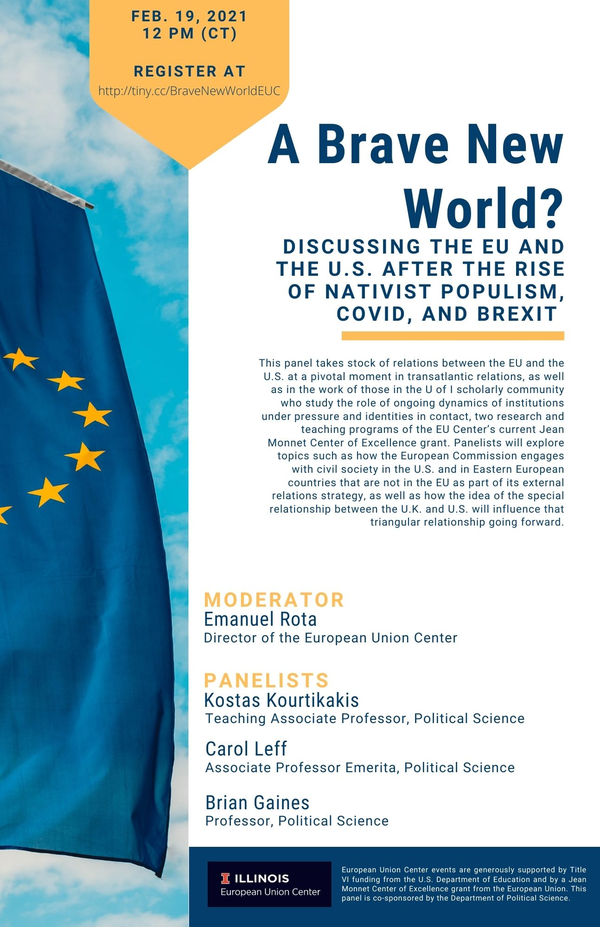
A Brave New World? Discussing the EU and the U.S. after the Rise of Nativist Populism, COVID, and Brexit with Kostas Kourtikakis, Carol Leff, and Brian Gaines
- Event Type
- Lecture
- Sponsor
- European Union Center; Political Science
- Date
- Feb 19, 2021 12:00 pm
- Registration
- Registration
- Views
- 318
The start of the Biden Administration brings a new key to relations between the European Union and the U.S., even if a great many of the challenges that shaped the past four years have not changed. It is still difficult to predict with certainty emergent strengths and weaknesses of a post-Brexit and post-COVID European Union. For instance, will these challenges suppress nativist populism, as seemed to be possible in places such as Germany during the onset of the pandemic, or only fuel it, as now seems more possible in the breakdown of vaccine rollout? Looking beyond the implications of the much publicized European Green Deal (the topic of a different EU Center co-sponsored event on March 2) for addressing economic recovery and climate change, how will the EU (and the U.S.) respond to the recent renewed squeeze of civil society and rule of law in parts of Eastern Europe, just to name one example? How will it respond to new declarations that it has gone too far in its grand vision for a united Europe, and needs to accept the implications of a deglobalizing world?
This panel takes stock of relations between the EU and the U.S. at a pivotal moment in transatlantic relations, as well as in the work of those in the U of I scholarly community who study the role of ongoing dynamics of institutions under pressure and identities in contact, two research and teaching programs of the EU Center’s current Jean Monnet Center of Excellence grant. Panelists will explore topics such as how the European Commission engages with civil society in the U.S. and in Eastern European countries that are not in the EU as part of its external relations strategy, as well as how the idea of the special relationship between the U.K. and U.S. will influence that triangular relationship going forward. Register here.
Moderator: Emanuel Rota, Director of the European Union Center
Panelists:
Kostas Kourtikakis, Teaching Associate Professor, Political Science
Carol Leff, Associate Professor Emerita, Political Science
Brian Gaines, Professor, Political Science